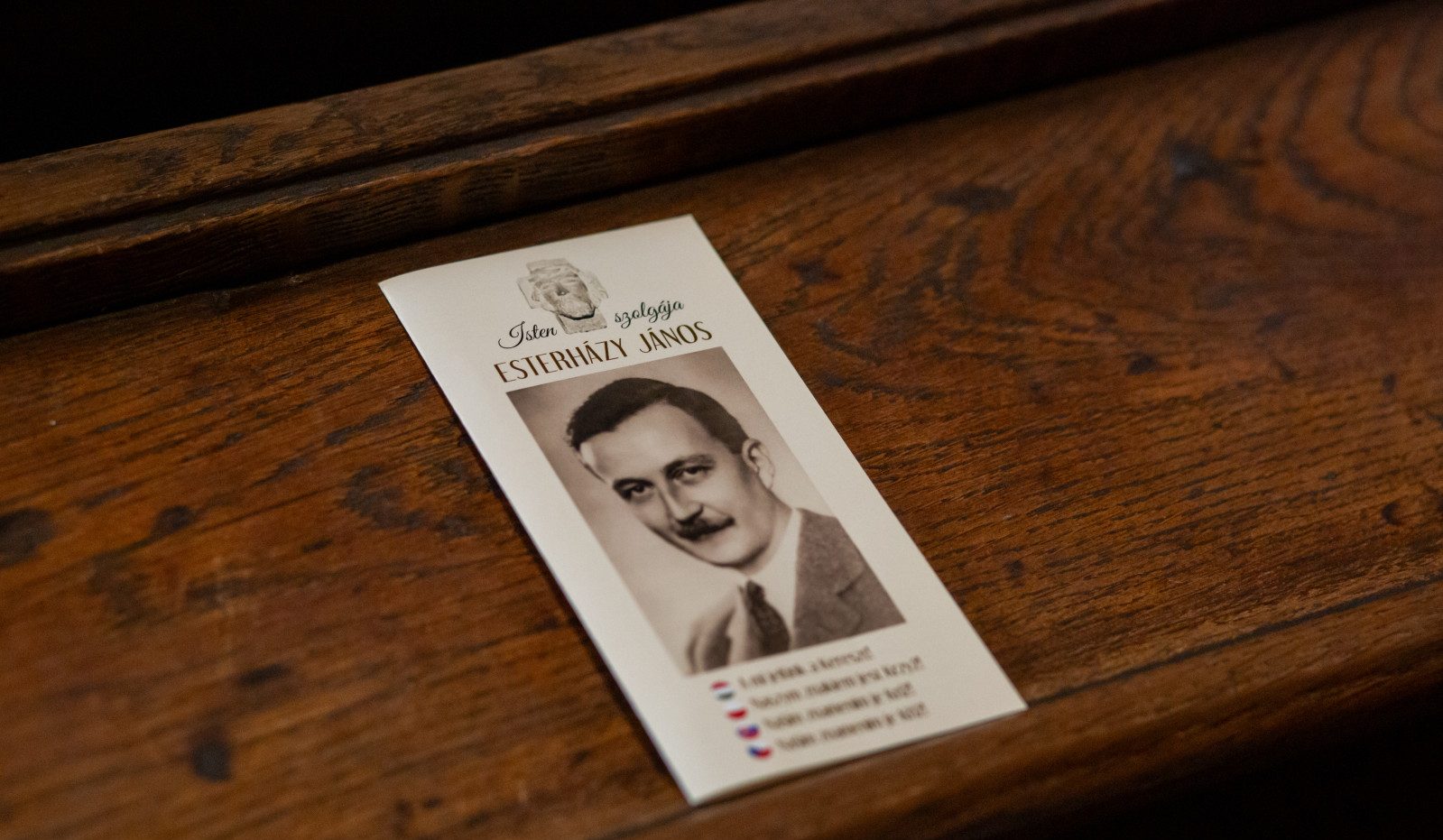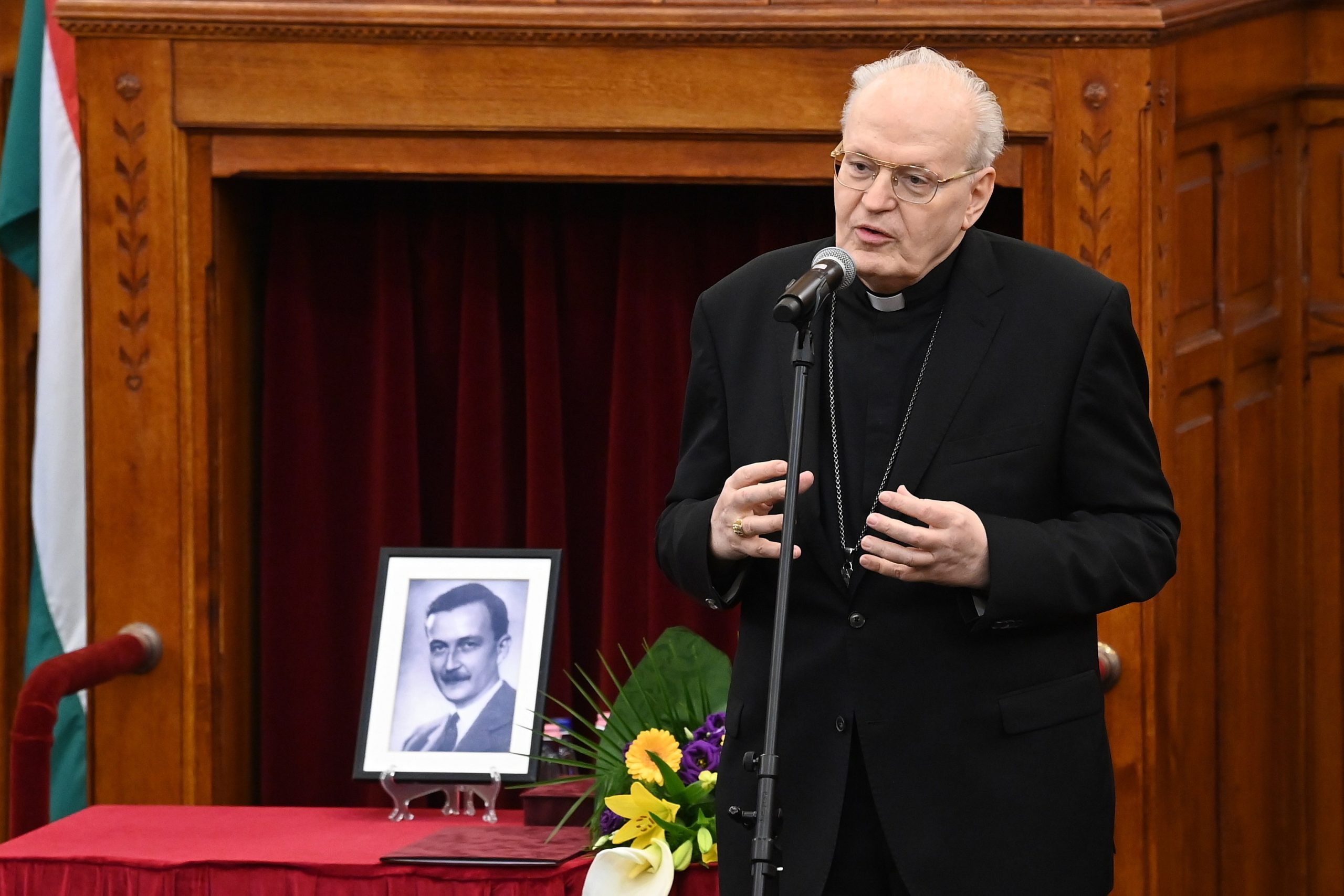
On March 10, in the Franciscan Church of St. Peter of Alcantara in Budapest, the morning began with a mass for the beatification of János Esterházy, led by church director Peregrin Kálmán OFM and Szabolcs Sajgó SJ, writes Magyar Kurír.
Imre Molnár, representing the Reconciliatio János Esterházy Association, delivered a presentation on János Esterházy’s life and significance before the church service.
Five years ago, the beatification process for the Servant of God was initiated in Krakow. János Esterházy, a political and spiritual leader of the Hungarian people, had resided in Budapest and frequented the nearby Franciscan Church for prayer. Arrested in Bratislava in 1945 by the communist secret police, he was deported to the Gulag and later sentenced to life imprisonment, where he died a martyr’s death on March 8, 1957.
During the mass, prayers of thanksgiving were offered for Esterházy’s life and example, as well as for the reconciliation of Central European nations and all involved in the beatification process.
After the mass, attendees walked to 3 Szép Street, where Esterházy resided from 1940 to 1944. Speeches were delivered by Árpád Martényi and Imre Molnár of the János Esterházy Memorial Committee, Péter Szász of the Esterházy Academy, and Szabolcs Sajgó SJ. The plaque, installed in 1991, was wreathed by various organizations and associations.
Related article
Cardinal Erdő: János Esterházy Promoted Christian Values in Public Life Even at Cost of Martyrdom
Count Esterházy (1901-1957), the sole Hungarian deputy in the Slovak Parliament before 1945, was a firm advocate of the ethnic Hungarian community, raising his voice against any violation of minority rights and against discrimination.Continue reading
Via Magyar Kurír; Featured Image: Magyar Kurír

